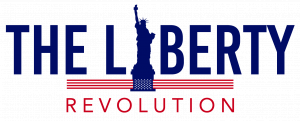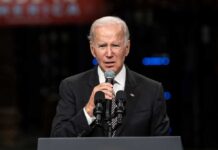JP Morgan Chase CEO, Jamie Dimon, has expressed skepticism about the effectiveness of ‘Bidenomics’ and has attributed the rise in inflation to President Joe Biden’s $5 trillion economic stimulus.
As the leader of the largest bank in the country, Dimon shared his perspective on Biden’s proposal to invest in the middle class by taxing the wealthy. This approach contrasts with the ‘trickle-down’ economic policies of the Ronald Reagan era that provided economic benefits primarily to the wealthy.
Dimon, 67, cautioned against specific regulations to safeguard the middle class, such as export controls, advising caution in implementing them. He characterized Bidenomics as an industrial policy to incentivize or subsidize specific industries.
Although Dimon has historically opposed such policies, he views them favorably concerning national security and competitiveness. However, he remains critical of government intervention in the free market, believing it detrimental.
While President Biden has hailed Bidenomics as a triumph, Dimon expressed uncertainty when asked to evaluate its success.
Dimon strongly criticized Biden’s $5 trillion stimulus package, encompassing the $1.9 trillion American Rescue Plan. Biden attributes the nation’s post-pandemic economic recovery to this plan.
The relief package was aimed at assisting Americans affected by the pandemic. It included direct payments of up to $1,400 for individuals facing financial difficulties, funds for COVID-19 vaccines and testing, support for state and local governments, aid for schools and the airline industry, and subsidies for health insurance.
Additionally, it extended enhanced unemployment benefits and allocated funds to hospitals for staffing and purchasing personal protective equipment to care for critically ill patients.
The package also allocated $39 billion for childcare and expanded the child tax credit to $3,000 per child.
Despite Dimon’s apprehensions, the Bureau of Labor Statistics Consumer Price Index indicates that the country’s inflation has decelerated to an annual rate of 3 percent, the slowest pace in over two years.
This marks a significant decline from the peak of 9.1 percent observed in June of the previous year and a decrease from the 4 percent increase recorded in May. It represents the lowest level since March 2021, when inflation stood at 2.6 percent.
The Bureau of Labor Statistics reports that gasoline prices have dropped by 26.5 percent since June 2022, offering a welcome respite for drivers refueling their vehicles.
This reduction starkly contrasts the situation a year ago when energy prices experienced a significant surge due to Russia’s invasion of Ukraine, contributing to a four-decade high in inflation.















